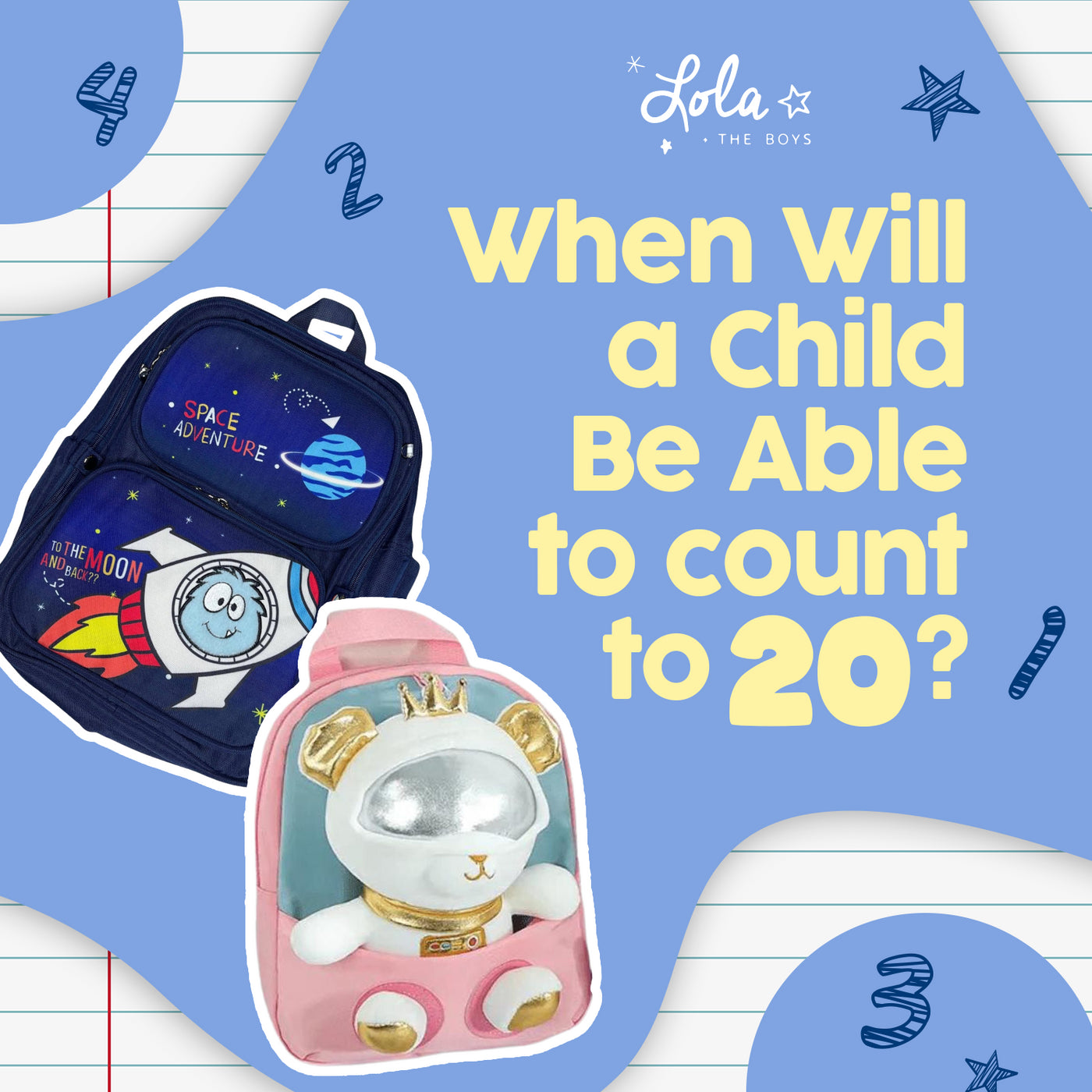Your Cart is Empty
When Will a Child Be Able to Count to 20?

It’s a common sight – little ones proudly counting from one to twenty, sometimes out loud and often with their fingers! But when will your child reach this milestone? While some children may be able to do it sooner than others, the general consensus is that most children are ready to count up to twenty at around the age of three. Read on for more information about how you can help your preschooler learn how to count and when they might be able to tackle those higher numbers!
When Will a Child Be Able to Count to 20?
Counting is an essential skill that children need to learn to prepare for their academic journey. For parents, knowing when their child will be able to count to 20 is an important milestone. In this article, we will discuss the cognitive development and stages of counting that are necessary for children to reach this milestone.
-
Cognitive Development
The cognitive development of children is a fascinating process that lays the foundation for many of the skills and abilities they will use for the rest of their lives. One of the essential skills that depend significantly on cognitive development is the ability to understand numbers and counting.
Sensory-Motor Stage (Birth to 2 years). During this stage, infants and toddlers learn about the world through their senses and motor skills. They explore objects, learn about cause and effect, develop memory and recognition skills, and learn to coordinate their movements. In terms of numbers and counting, children at this stage may engage in simple counting by touching or moving objects around, such as stacking blocks or counting their fingers.
Preoperational Stage (2 to 7 years). Children begin to develop symbolic representational play, which involves using one object to represent another. For instance, pretending that a block is a car. They can also understand simple mathematical concepts such as “more than” and “less than.” Children at this stage can count more systematically and use counting as a problem-solving tool. They may also start recognizing numbers and naming them by sight.
As children progress through the different stages of cognitive development, their understanding of numbers and counting skills becomes more sophisticated. By understanding these stages, parents and educators can provide opportunities for children to enhance their cognitive development and support their learning.
-
Understanding Numbers
Before children can count to 20, they must have a good understanding of numbers. This includes the ability to recognize and identify numbers visually and understand their meaning. Children who are familiar with counting rhymes, books, and songs that use numbers can better understand and recognize numbers up to 20.
-
Counting Objects
Children start counting small numbers of objects, such as toys or blocks, as early as two or three years old. Counting objects can help children learn the sequence of numbers and understand the concept of one-to-one correspondence.
-
Counting to 10
Most children can count to 10 by the time they are four years old. By this age, they have developed a basic understanding of numbers and can match them with objects. Parents may help their children develop this skill by counting objects during playtime, like counting blocks or animals.
-
Counting to 20
Counting to 20 is a significant milestone that is achieved when the child is around five or six years old. To reach this milestone successfully, children require practice and experience in counting numbers. Parents can use various objects such as coins, sticks, or toys to help their child count up to 20 while following the sequence correctly.
Counting is a critical skill that children need to learn. Children progress through various stages of cognitive development that contribute to their ability to count up to 20. It’s important to provide opportunities for children to count and identify numbers regularly. By doing so, parents can help their children achieve this milestone while making the journey to learning fun and enjoyable.
Dress Your Little Learner for Success with Lola and the Boys
Now that you know when your child will be able to count to 20, it's time to celebrate their big milestones! And what better way to do so than by shopping for some adorable outfits for your little one?
Lola and the Boys is your one-stop shop for trendy and fashionable clothing for kids. Our clothing range features fun and playful designs that your kids will love, whether they're learning to count, playing at the park, or attending a special event. Plus, you can rest assured that our high-quality and comfortable outfits will withstand even the most active little learners.
Lola and the Boys also offer a fantastic selection of colorful and stylish backpacks that are perfect for kids who are learning to count. These school bags provide ample space for books and supplies and feature exciting designs. With various options for both boys and girls, parents will have no trouble finding a backpack that suits their child's personality and style while also being an effective tool for learning.
So, why not head over to Lola and the Boys today and pick out some stylish outfits and bags for your little one to use while practicing counting? Don't forget to check out the reviews page to see why so many parents trust Lola and the Boys for their kids' clothing needs.
Final Thoughts
Counting is a crucial skill that can be made enjoyable and manageable with simple strategies. Start at home with everyday objects, incorporating fun activities like songs and games to reinforce counting. By patiently guiding your child through the basics of counting, you can help them see how numbers are woven into their daily life. Once they master counting from one to twenty, you can introduce fun challenges that apply to numbers in different contexts, building their math confidence. With consistent practice and encouragement, your child will soon be counting with ease and confidence like a counting whiz! So, when will a child be able to count to 20? With your support, the answer is closer than you think.
Frequently Asked Questions:
Parents often wonder when their child will be able to count to 20 and if some kids count to 20 earlier than four years old. If you're a parent, you may have the following questions regarding when children will be able to count to 20:
Q: Can some children count to 20 earlier than four years old?
Yes! Some children will count to 20 before their fourth birthday. Typically, most children can recite numbers from 1 to 10 by the age of two. Still, it's not until they are four years old that most children will learn to count accurately to ten and more.
However, it's worth noting that there is a wide range of normal development in children. So while some children may count to 20 earlier than others, it doesn't mean that the child who's slower to learn will fall behind in academics in the future.
Q: How can I help my child learn to count?
As a parent, there are simple steps you can take to help your child learn how to count:
- Read counting books and rhymes with your child.
- Use different objects and toys to help your child understand numbers.
- Count your fingers and toes together with your child.
- Count everyday objects like apples, blocks, or crayons.
- Play games that involve counting numbers, like hide-and-seek.
The most crucial part is to keep it fun and engaging.
Q: What should I do if my child is struggling to count?
If your child is struggling to count, don't worry; it's entirely normal. Here are some things you can do to help them:
- Patience is the key; your child will eventually learn how to count with time.
- Break down counting into small sets of numbers to focus on.
- Try to use visual aids to make counting more accessible.
- Celebrate their small successes to encourage them to continue their learning.
Every child develops at their own pace. While most kids will be able to count to 20 by the age of four, some may learn earlier, and others may learn later. As parents, we can support our children's learning and development by providing fun and engaging activities that will help them master this essential skill.













